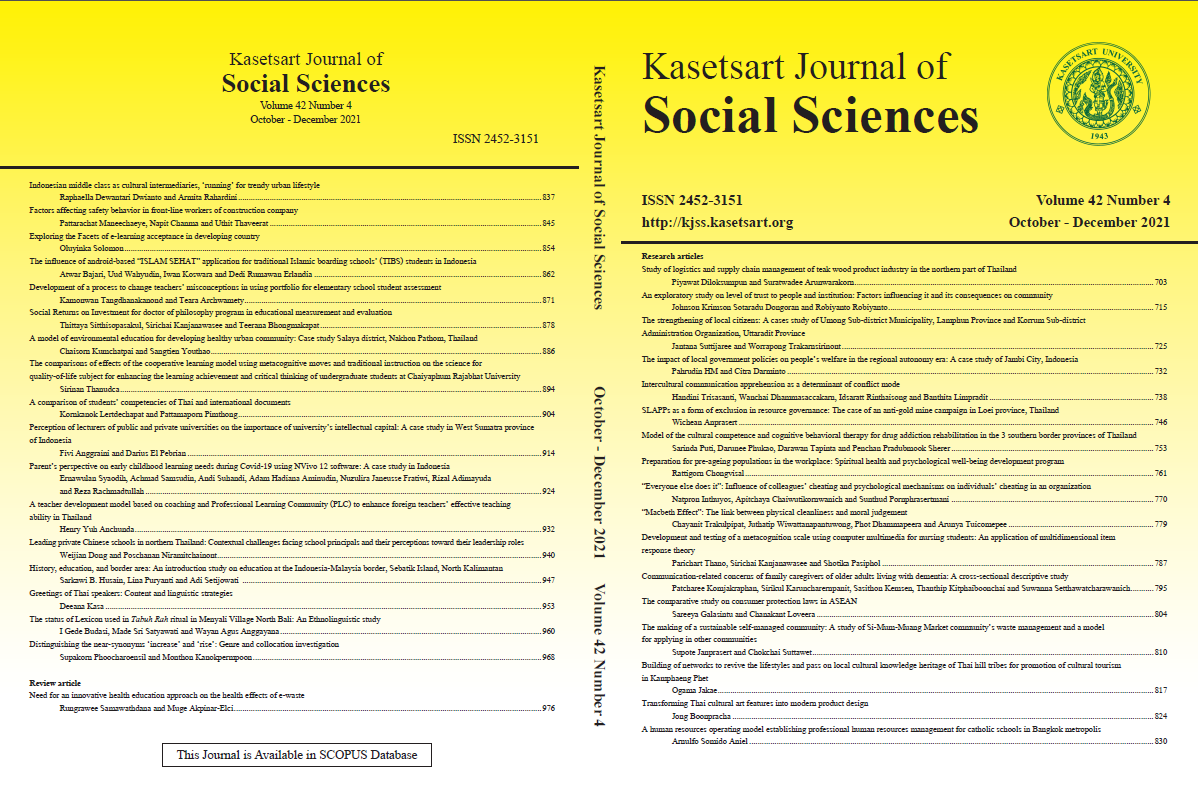Intercultural communication apprehension as a determinant of conflict mode
Keywords:
communication anxiety, conflict management style, conflict resolution, expatriates, multicultural officeAbstract
Successful communication skills are vital for the support of work and academic activities. However, people with different cultural backgrounds can experience communication difficulties that may lead to conflict and a reduction in work output. This study investigated intercultural communication apprehension (ICA) as a determinant of conflict mode (CM) and aimed to explore its effect on conflict resolution in multicultural offices. The study employed a mixed-methods approach with a quasi-mixed design. A total of 130 employees of the embassies to the Association of Southeast Asian Nations (ASEAN) in Jakarta, Indonesia, participated in the research. Following discriminant analysis and reversed one-way analysis of variance, the quantitative analysis revealed that ICA has discriminating ability over CM, resulting in how different ICA levels can lead to different conflict modes (χ2 23.55, p < .001), with the majority of cooperating mode. Following thematic analysis, qualitative data indicated that lower ICA levels resulted in better conflict resolution in multicultural environments. This study contributes to improving communication in multicultural offices in ASEAN region by presenting the benefits of lower ICA levels to reduce conflicts between colleagues with different cultural backgrounds.
Downloads
Published
How to Cite
Issue
Section
License

This work is licensed under a Creative Commons Attribution-NonCommercial-NoDerivatives 4.0 International License.
This is an open access article under the CC BY-NC-ND license http://creativecommons.org/licenses/by-nc-nd/4.0/










